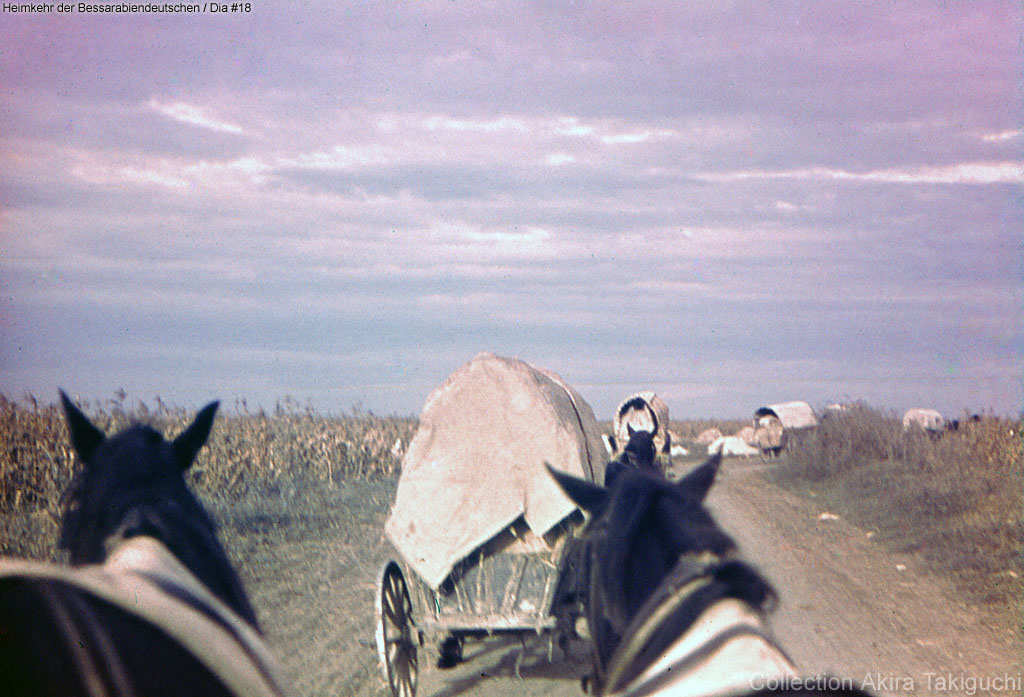Click the image for a larger scan

continued from the previous page
At the end of September, the great resettlement journey started. Resettlers who moved by truck or by train could carry only 35-50 kilograms of baggage. Those who moved on horse-drawn carriage could carry up to 250 kilograms, Everything else was sold off or just left to the Soviets. Farmers dreamed of the new world promised by the Führer. It must be a better world - yes, it must have been...
One group after another, the resettling farmers arrived at the ports along Donau, namely Galatz, Kilia and Reni. The resettlement operations had prepared 26 German, Yugoslav and Hungarian vessels for transportation. Each vessel had room for 400 to 1,000 passengers. They switched back and forth to bring all the resettlers to the port of Zemlin (near Belgrad).
After two days and two nights, resettlers arrived at Zemlin, where temporary camp was prepared for them using airport and other facilities. After a few days, they took a train trip to 250 resettlment camps in Saxon, Franconia, Bavaria, Sudetenland and Austria. 86% of the resettlers who were considered to be "valuable" and "reliable" by the Nazi regime would colonize conquered eastern region, mainly in former Poland. But sometimes it took very long before they could move on, the last farmers moved around the end of 1942, when the tide of war was already turning...
The resettled farmers started new life in the promised land, but they would be harrassed occasional violence from polish Partisans, who were also the victims of two dictators. At nights, self-orginized defense force patroled the new village but not a few Bessarabian-german farmers lost their lives. In 1944, just after a couple of years of life in the new villages, the onslaughting Soviets approached, and again the farmers had to flee to the West, losing their homeland again.
In a short period Bessarabian-german people lost their homeland twice, but naturally their lives continue in their new homes. May the culture and tradition of the Bessarabian-german will be inherited by their children!